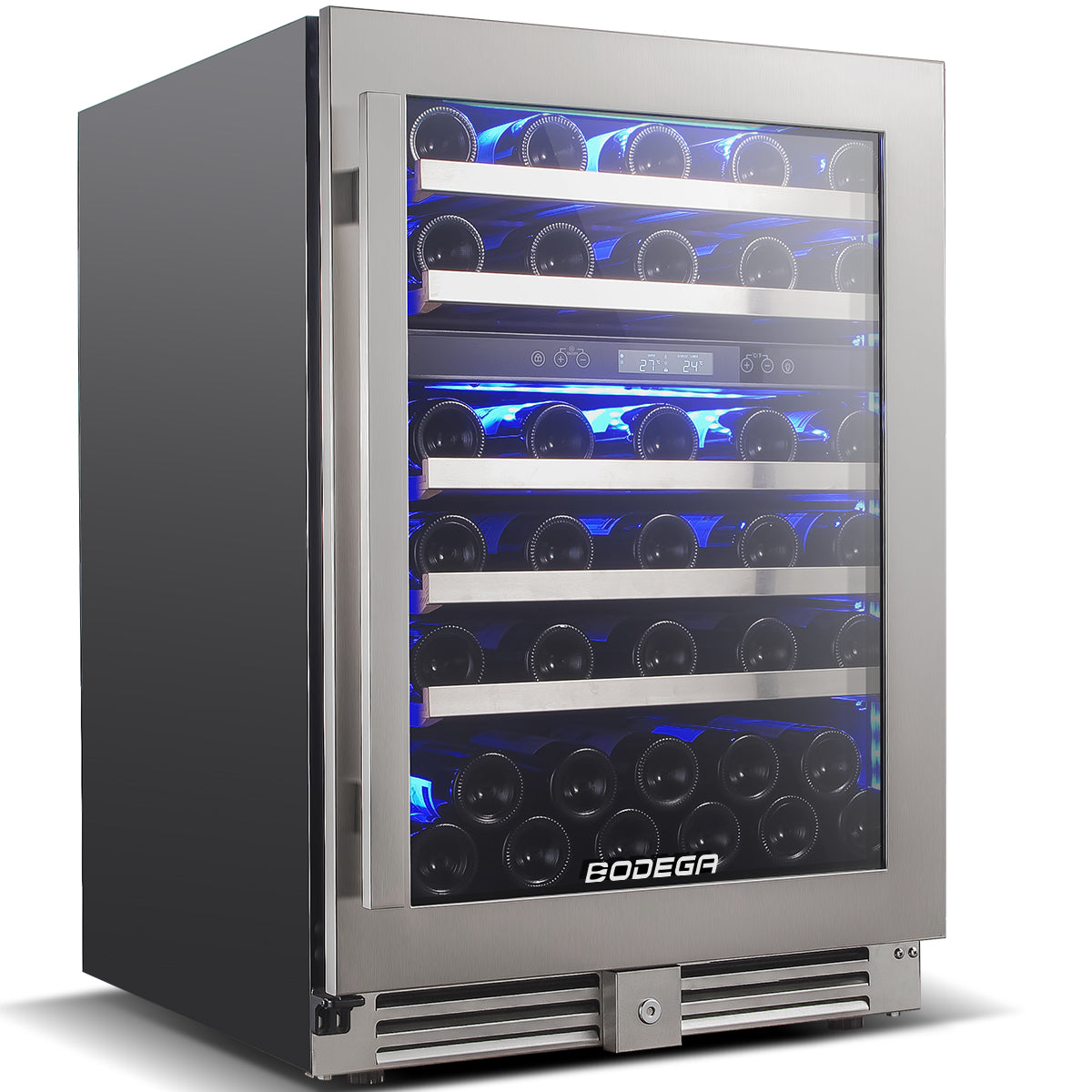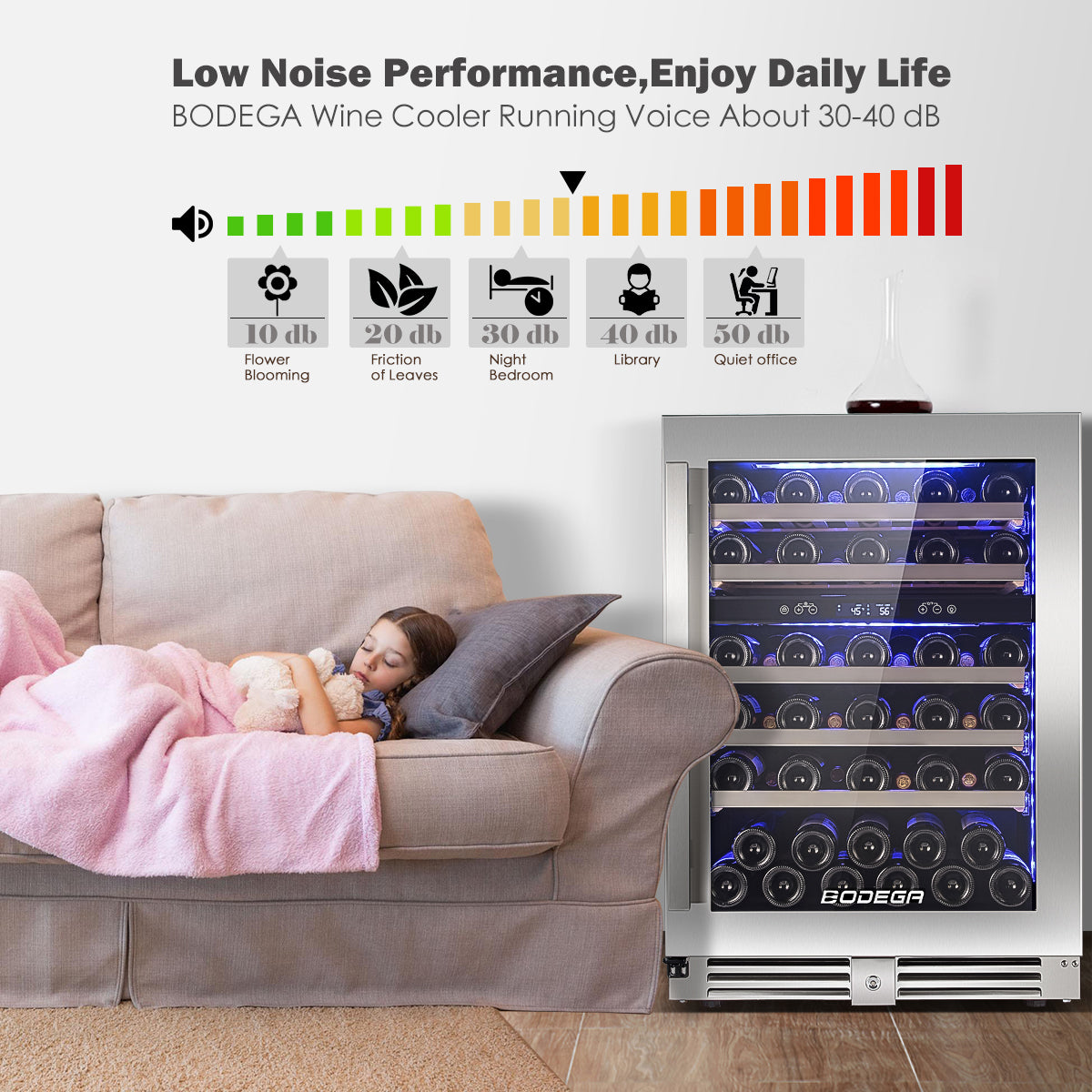Wine enthusiasts often find themselves pondering the question: Can a wine cooler fridge run all the time? To address this curiosity, it's crucial to delve into the intricacies of wine cooler operation and maintenance. Understanding the factors influencing continuous operation, debunking common misconceptions, and exploring the impact on both the appliance and the precious wine bottles it houses are essential aspects of this exploration.
How Wine Cooler Fridges Work
Before diving into the continuous operation debate, let's first grasp the fundamental workings of a wine cooler fridge. These appliances are designed with precision cooling mechanisms, ensuring a stable internal temperature for optimal wine storage. The cooling system typically includes a compressor, condenser, and evaporator, all working harmoniously to create the ideal climate for wine aging.

Can a Wine Cooler Fridge Run Continuously?
The answer isn't a simple yes or no. Various factors influence whether a wine cooler should run continuously. These factors range from the external environment to the specific design and capacity of the wine cooler. It's crucial to consider the impact of continuous operation on both energy consumption and the longevity of the appliance.
Read more: What Temperature Should I Keep My Wine Refrigerator At?
Ideal Operating Conditions
To strike a balance between preserving wine quality and preventing overworking the wine cooler, it's essential to adhere to recommended temperature settings. Most wine coolers come with adjustable thermostats, allowing users to set the desired temperature based on the types of wine being stored.
Common Misconceptions
One common misconception is that continuous operation will lead to faster wear and tear of the wine cooler components. However, modern wine coolers are designed to handle continuous use without significant issues. It's important to separate myths from facts to make informed decisions about the appliance's operation.
Energy Efficiency and Cost Considerations
While continuous operation may seem like a straightforward choice for wine enthusiasts, the energy efficiency and cost implications should not be overlooked. Some wine coolers are built with energy-efficient features, contributing to lower electricity bills. Calculating the cost of continuous operation versus regular cycling can help users make economical choices.
Potential Risks of Continuous Operation
Continuous operation can pose potential risks to wine quality. Consistent cooling may alter the aging process, affecting the taste and aroma of the wine. Understanding these risks is crucial for individuals aiming to strike the right balance between continuous operation and regular cooling cycles.
Tips for Efficient Wine Cooler Use
Efficient wine cooler use involves more than just deciding on continuous or intermittent operation. Proper loading and organization of wine bottles, coupled with regular maintenance, contribute to the appliance's longevity and performance. Implementing these tips ensures that the wine cooler operates optimally, regardless of the chosen mode.
Understanding Wine Cooler Thermostats
Accurate temperature control is paramount in wine storage. Wine cooler thermostats play a crucial role in maintaining the desired temperature. Users should familiarize themselves with the thermostat settings and troubleshoot any issues promptly to ensure a stable storage environment for their wine collection.
Balancing Act: Continuous Operation vs. Regular Cycling
The decision between continuous operation and regular cycling is a balancing act. Finding the right equilibrium ensures the preservation of wine quality while minimizing energy consumption. This involves understanding the specific needs of the wine being stored and adjusting the wine cooler settings accordingly.
Noise Levels and Cooling Cycles
For those concerned about the noise generated by continuous operation, selecting a wine cooler with a quiet cooling cycle is essential. Many modern models are designed with noise reduction features, providing a tranquil environment for both the wine and its owner.

Long-Term Effects on Wine Quality
Scientifically speaking, the long-term effects of continuous wine cooler operation on wine quality are a subject of interest. Studies support the notion that intermittent cooling mimics natural temperature fluctuations, contributing to the complexity and richness of the wine. Striking a balance between continuous operation and periodic rest periods can enhance the overall aging process.
User Experiences and Testimonials
Real-life experiences and testimonials from wine enthusiasts offer valuable insights into the debate on continuous wine cooler operation. Positive and negative feedback shed light on the diverse approaches users take to preserve their wine collections. These firsthand accounts help others make informed decisions based on practical experiences.
Best Practices for Wine Cooler Ownership
To ensure the longevity and optimal performance of a wine cooler, users should adhere to manufacturer guidelines. These guidelines provide specific instructions on maintenance, cleaning, and troubleshooting. Additionally, adapting to seasonal temperature variations is crucial for preventing unnecessary stress on the appliance.
Read more: How to Maintain and Clean Wine Cooler?
Conclusion
In conclusion, while continuous operation is possible and even beneficial in some cases, it's crucial to consider the potential risks and benefits. Striking a balance between continuous operation and regular cycling, adhering to best practices, and understanding the specific needs of the wine collection are key to maintaining both the appliance and the quality of the stored wine.
FAQs
Is continuous operation suitable for all types of wine coolers?
- Continuous operation is generally suitable for modern, well-designed wine coolers. However, it's essential to check the manufacturer's recommendations for specific models.
Does continuous operation affect energy consumption significantly?
- Continuous operation may result in slightly higher energy consumption. Users should weigh the energy costs against the benefits of constant temperature control.
Are there any risks associated with continuous wine cooler operation?
- Risks include potential alterations to wine aging processes, affecting taste and aroma. Users should monitor their wine collection and adjust the cooler settings accordingly.
How can I reduce noise levels during continuous operation?
- Choosing a wine cooler with noise reduction features and proper installation can minimize operational noise.
What are the long-term effects of continuous operation on wine quality?
- Scientific studies suggest that intermittent cooling can enhance the complexity and richness of wine. Striking a balance is essential for optimal aging.







